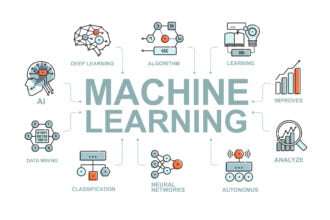Big Data is a buzzword right now, but what is big data and how has it changed the e-commerce industry?
We are surrounded by data. Everything we do, online and offline, generates data. The problem with data is that there is so much of it out there, it is very difficult for businesses to use it to make intelligent decisions, but it really pays to be a data nerd.
Data is typically collected from numerous sources: website analytics, sales metrics, customer leads, email subscriber numbers, etc. This information offers useful insights that retailers and e-commerce businesses can use to their advantage.
Businesses can now use information gleaned from Big Data to increase revenue, gain new customers, and streamline their operations. Here are six ways Big Data has changed the face of e-commerce in the last few years.
1. Shopper Behavior
Big Data is essential in developing a shopper profile. Mine data from your online purchases to see which products are the most popular and when your store experiences spikes in demand. You can take advantage of this data to formulate marketing strategies. For example, website analytics data might reveal customers are visiting your website looking for a specific product that you don’t yet stock. This is a missed opportunity.
A well-known example of how Big Data sometimes reveals unexpected buyer patterns is when Walmart discovered that shoppers often bought beer at the same time as nappies. If you sell pet products in your online store, you might see that customers often browse cat litter when they buy cat food, so it makes sense to add a link from one page to the other.
Another example of when analysing shopper behavior can pay dividends is if you discover that customer purchases peak during the evening. Taking advantage of peak demand periods is also a useful way to offload excess stock at sale prices. You could alter pricing to reflect the spike in demand and run your social media marketing ads during the evenings.
Anything you can do to make the shopping experience more intuitive is likely to boost customer engagement and sales. In a competitive marketplace, this is always a good thing.
2. Customer Service
Providing good customer service is critical in the e-commerce sector. You need to make it as easy as possible for customers to contact you to resolve problems or ask questions. A whopping 68% of e-commerce customers abandon a brand or website because of poor customer service, so anything you can do to improve the UX is going to help your bottom line.
Use Big Data to analyse important metrics such as how long it takes a customer to get through to your customer service department or receive an answer to an email query. Monitor customer satisfaction levels and track delivery times. If you spot any problems or identify aspects of your customer service where improvements can be made, allocate more resources to this area and monitor it closely.
3. Dynamic Pricing and Special Offers
E-commerce retailers should make Big Data a key part of their customer retention strategy. You can use data to build a customer profile and find out how much they like to spend, and on what products. Track your customer’s behavior as they engage with your online store. Use analytics to help you to develop flexible pricing and discounts. For example, if analytics reveal a spike in interest in a particular category of goods, you can offer customer discounts or BOGOF offers.
4. Customised Offers
The same principles apply to customized offers. Use data to determine a customer’s buying habits and send them targeted special offers and discount codes based on previous purchases. Data can also prove useful in re-engaging customers when they abort a purchase or look but don’t buy. You can send out emails reminding the customer of a product they looked at or invite them to complete a purchase. Amazon and eBay have this technique down to a fine art.
5. Supply Chain Management
Use Big Data to manage your supply chain more effectively. Data analytics can reveal any delays in the supply chain or potential inventory problems. If there are issues with a particular item, you can remove it from sale immediately to avoid damaging customer service issues.
6. Predictive Analytics
Analyze the various channels of your e-commerce business to help you develop a business plan for future operations. Your data may reveal new buying trends or slowing sales in a department of your online store. Use this information to plan your inventory for the next period and make decisions about new markets to target.
It is never easy staying up to date with the latest trends in the e-commerce world, but harnessing Big Data can significantly boost your bottom line and help you build a successful, forward thinking business. If you haven’t yet tapped into the power of Big Data, you could be missing out.










